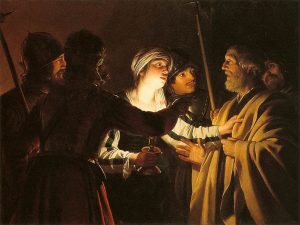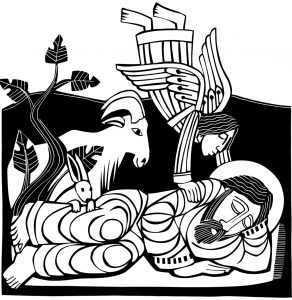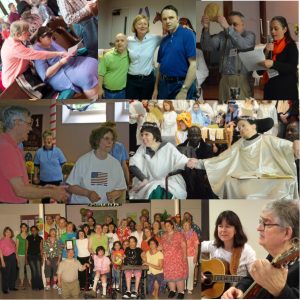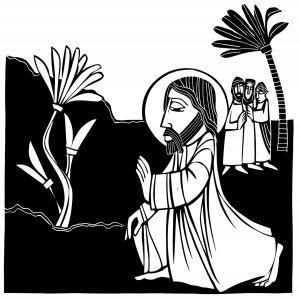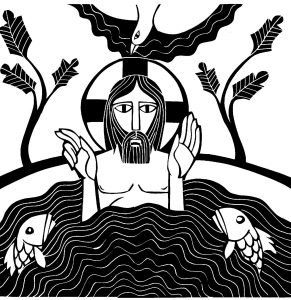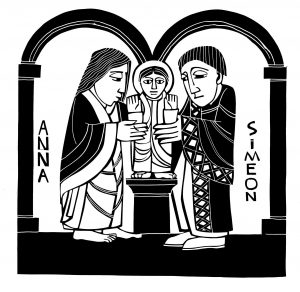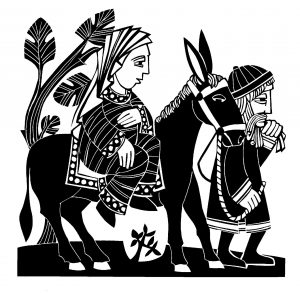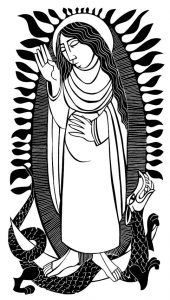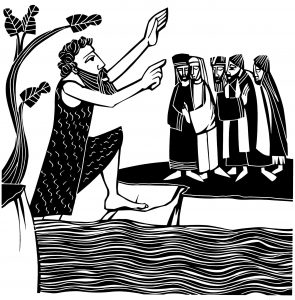Every preacher I’ve ever met can tell the same story. Here is how the story goes: Some weeks, our sermon just won’t come together. We work hard, but still — ugh. Days pass, and when Sunday comes, that sermon has got to be preached, whether we like it or not. So we get up, and give the sermon, full of dread that we are disappointing God and the congregation whom we have been called to serve. And then, it happens: someone comes up to us at the end of the service and says, “Pastor, that was EXACTLY what I needed to hear today.”
Let me be clear: this doesn’t mean it was a good sermon. It probably wasn’t a very good sermon. Half the time, the thing the person says they heard in your sermon, that thing that they really needed to hear – that is something you never even said. But God has taken the ingredients on hand: a struggling pastor, a person hungry for a message, and the Holy Spirit – and made something amazing happen. Even if every single other person in the congregation leaves that day thinking, “well, I didn’t really get much out of that one” – one person got something they desperately needed.
This story that every pastor can tell reminds me of Jonah. Jonah is perhaps the worst prophet in all of scripture. God asks Jonah to get up and go at once to Ninevah, that great city, and cry out against it. Now, many prophets are reluctant to do what God asks them to do. Jeremiah says: “I am only a boy!” Moses says, “Who am I to go to the great Pharaoh?” But Jonah doesn’t even bother arguing with God. He just takes off in the other direction. He literally runs away from God.
As it turns out, God doesn’t take “no” for an answer. God uses all kinds of extraordinary methods to get Jonah back on track: waves, wind, mortal danger, and three days in the belly of a giant fish. When the fish deposits Jonah back on dry land, God is right there, ready to try again. She tells Jonah to get up and go at once to Ninevah, that great city, and cry out against it.
This time, Jonah goes. But he’s not happy about it! He composes a sermon that is only one sentence long. He preaches it for only one day. He walks only one-third of the way through the city. But that one sentence, and that one day, and that one-third of the city turns out to be enough. It is enough to set the whole city aflame with a passionate desire for spiritual reconciliation and renewal. Someone carries word to the King himself and the King issues a decree that all humans and even the animals in Ninevah must fast and turn from their evil ways.
Those of you who are familiar with our scriptures, I ask you, do people usually respond in this way to the message of a prophet, immediately obeying their call to repentance? No. Never! Generally, prophets are ignored, or even punished. Jonah is extraordinarily successful in restoring a great city’s faithfulness, with only one sentence, and one day, and one-third of the city.
You might think that Jonah would be proud of what he has accomplished. Not at all! When the people respond to his message with repentance, and God responds to the people with compassion, Jonah is so angry he wants to die. He throws a tantrum in front of God because of the mercy God has shown. He stalks out of the city and sits down and waits – just in case God decides to destroy the city after all. He wants to watch it burn.
The story ends with God asking Jonah a question: is it right for you to be angry? Is it right for you to be angry that I care about a city that I created and tended? And the book ends, awkwardly, right there: with God still waiting for Jonah to come around.
Most of us who gather around the word of God are very imperfect people. We have more in common with Jonah than some of the more admirable figures in our bible. Maybe you can think of a time when you ran away from an opportunity that God gave you. Maybe you can think of a time when God’s grace made you angry instead of grateful. Maybe you can think of a time when you did the right thing only by mistake, or through the amazing intervening power of God.
But our God is a persistent God, who follows us wherever we go. Our God is a creative God, who sends us messages in new ways to try to get our attention. Our God is a loving God, who cares for us even when we are extremely unpleasant to be around. Our God is a compassionate God, who offers us chance after chance after chance to get it right. No matter how badly we behave, God keeps trying to help us live a new kind of life, for our own sake, and for the sake of those around us. It is never too late. Thanks be to God.

